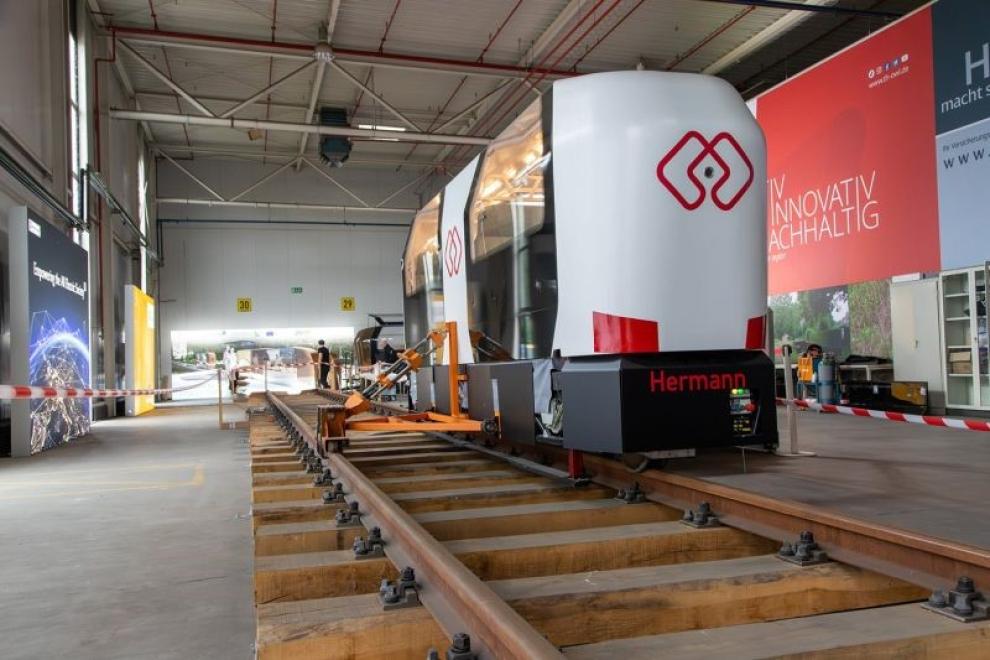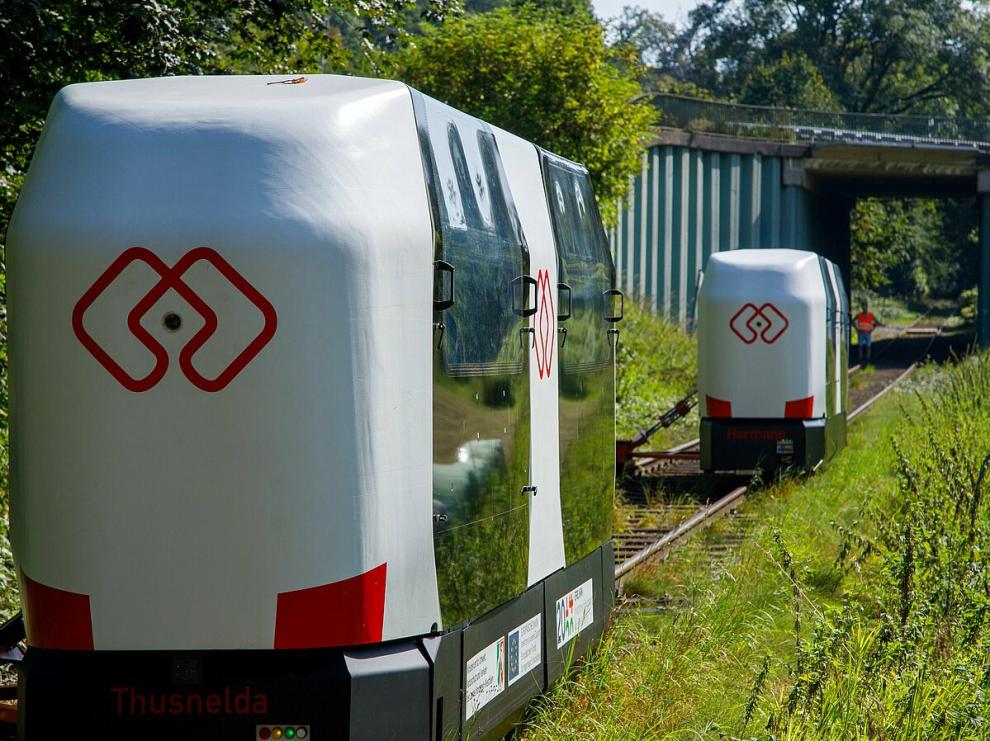MONOCAB Rijn-Waal - Cross-border cooperation and research
Feasibility study on the reactivation of railroad lines by MONOCAB

Public transportation in rural areas faces significant challenges. The shortage of skilled bus and train operators is intensifying, exacerbated by the retirement of the "boomer generation" from the workforce. Additionally, families and retirees are relocating from urban centers to rural areas to reduce rental or construction costs, while families are increasingly unable to afford a second or third car. In short, new transportation concepts are urgently needed.
The MONOCAB represents an innovative rail technology aimed at providing customizable mobility solutions in rural areas through autonomous "rail taxis." This technology is being primarily developed by the Technische Hochschule Ostwestfalen-Lippe (TH OWL). https://www.youtube.com/watch?app=desktop&v=w8b8avaq1yY

Foto ©TH OWL
The purpose of the “MONOCAB Feasibility Study on the Kleverland Research Track” is to assess the technical and economic viability of a second MONOCAB research route between “Kleve-Kranenburg-Groesbeek (NL).” The study also aims to evaluate public acceptance of this research route and investigate cross-border mobility needs within the German-Dutch border region.
Rhine-Waal University of Applied Sciences entered into a cooperation with TH OWL in August 2024 to investigate this. HSRW professors from the fields of AI acceptance research, (transport) economics and sustainability transformation are working together on an interdisciplinary basis. In addition, the HSRW will organize a “before and after acceptance study” and a test drive event in March 2025 at the former German-Dutch border station Kranenburg with and for residents in the surrounding communities to give the study participants the opportunity to experience the MONOCAB technology first-hand.
The exhibition “When the train came to Kleve”, organized by the Kranenburg and Nütterden local history associations on the occasion of the test drive event, allows visitors to the event to experience the past and future of mobility in rural areas in one place.
The project team consists of the HSRW, the cycle traffic planning office Loedersloot Consultancy from Nijmegen and a group of volunteer supporters on both sides of the German-Dutch border who are reviewing the progress of the feasibility study and organizing and carrying out the test ride event.
The project is made possible by the Interreg Germany-Netherlands program and its program partners and is co-financed by the European Union (EU).

Project Management
Prof. Dr. Ralf Klapdor
Dean and Professor of Business Administration with a focus on International Taxation
Other professors involved
Prof. Dr. Thomas Pitz
Professor for economics with a focus on game theory
Prof. Dr. Jörn Sickmann
Professor for economics with a focus on Industrial economics and corporate finance
Prof. Dr. Gernot Müller
Professor for economics with a focus on quantitative methods
Dr. Klaus Krumme
Managing Director of the Joint Center Urban Systems (JUS) at the University of Duisburg-Essen (UDE)
Research assistants
Dr. Wolf Gardian
Research Assistant for Economics Coordination Laboratory Infrastructure
Other project participants
Diplom-Informatiker (TU) Andreas Lietschulte
Radverkehrsplanungsbüro „Loendersloot Consultancy“.
Cooperation partners
Technische Hochschule Ostwestfalen-Lippe,
RailCampus OWL,
Loendersloot Consultancy (Nijmegen),
Grenzland-Draisinen-GmbH
Supporters' network, coordinated by Andreas Lietschulte
Contact person
Scientific coordination:
Dr. Wolf Gardian
wolf.gardian@hochschule-rhein-waal.de
Duration
10.2024 – 11-2025
